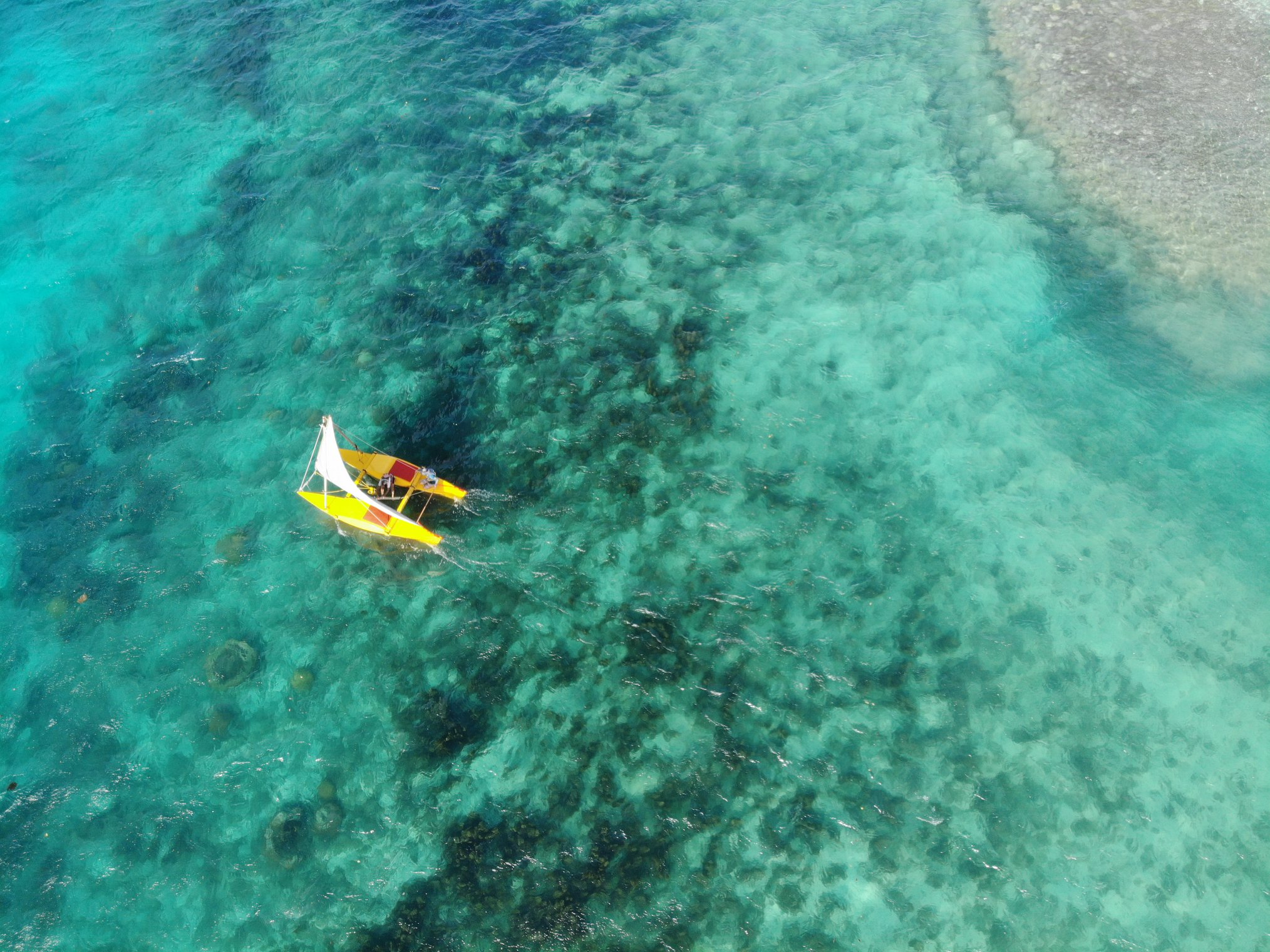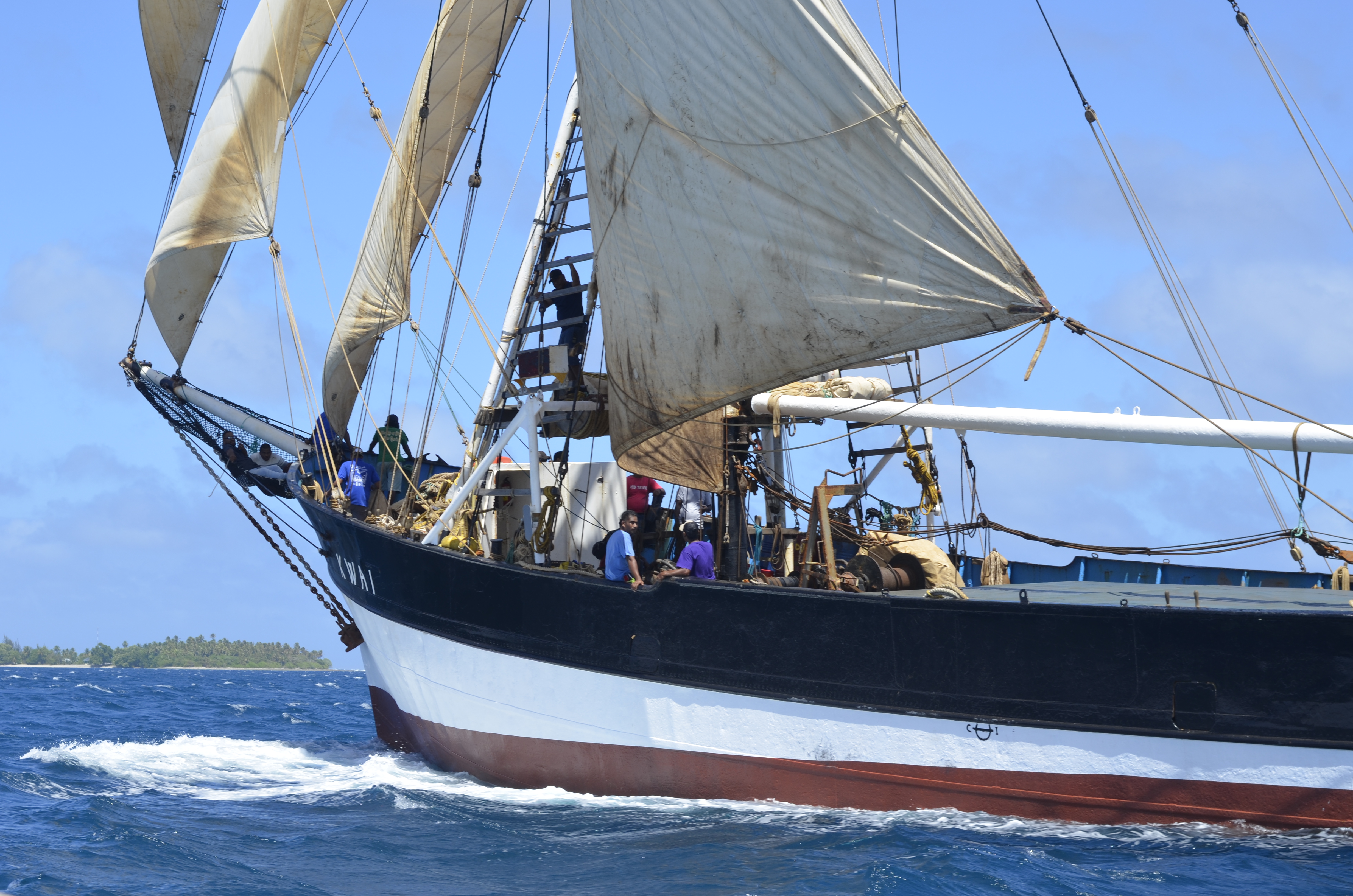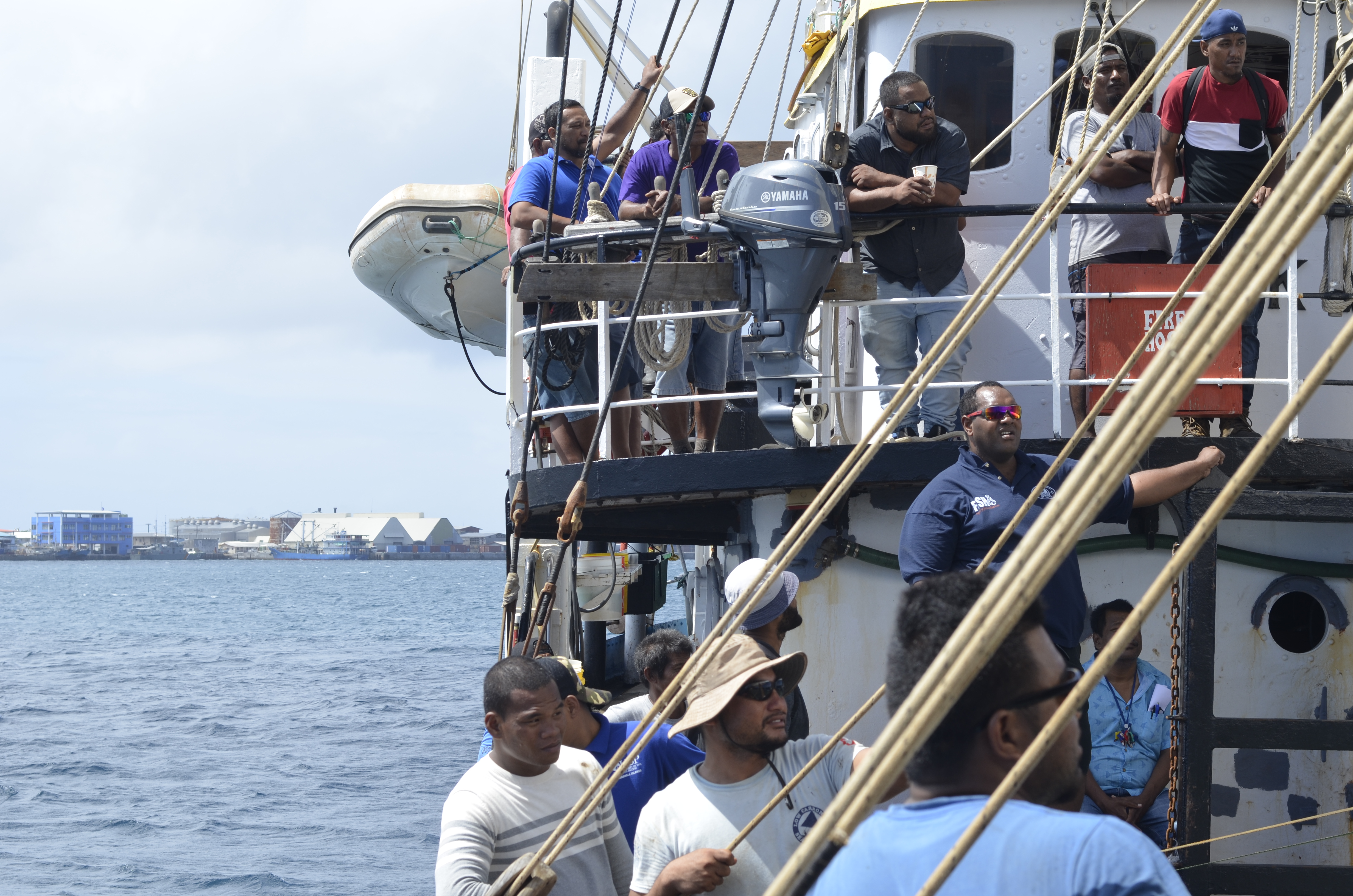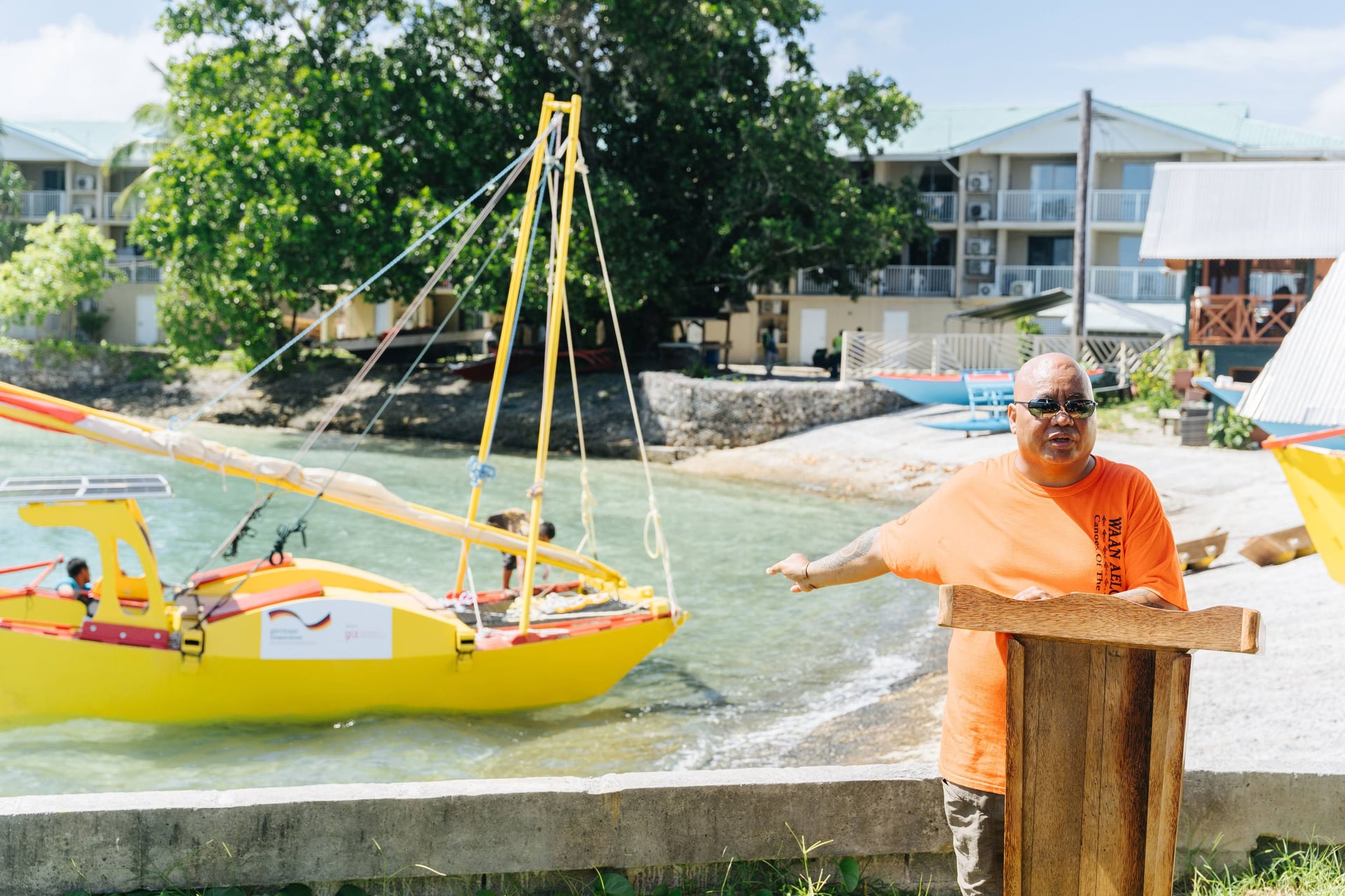




Ri Majol, the people of the Marshall Islands were known for their superior boat building and sailing skills for centuries. They traveled frequently between their atolls (for trade and war) on big offshore canoes called Walap (some of them 100ft long). The lagoons of their low-lying coral atolls where crested by sails of smaller outrigger canoe designs for rapid inside lagoon transportation, food gathering and fishing. Together with Waan Aelõñ in Majel, we are reviving the traditional knowlege combined with modern technology. The ambitious goals of the Marshall Islands in the sea transport sector have become the main driver and motivation for us to pursue and to transition towards a low carbon fleet for the Marshall Islands for transport inside the lagoons and between atolls. Currently, a 150 ft. Training Vessel is about to be constructed and delivered to RMI by the 2nd half of 2022. After the agreement of the design, the market survey process started with the objection to identify shipyards that are interested and capable of building the new built as drafted in the tender design. The Maritime Training Approach in the Marshall Islands sets a clear focus on Low Emission Sea Transport Education and will train future sailors as part of the national fleet operators.
Today, the traditional outrigger canoe designs are not in use for inter-atoll voyages in RMI anymore. The traditional inter atoll voyages stopped and none of the traditional inter-atoll canoes (Walap) survived till today. Nowadays, offshore transport tasks are mainly carried out by the government owned Marshall Island Shipping Corporation (MISC) and private contractors with conventional monohull freighters with motorized engines causing emissions and impact on climate change.
The charter of SV Kwai - a sailing cargo vessel - in the time period from September to end of December 2020 showed how essential training is in the revitalization of sailing rigged ships that make the way open for a low emission transportation set up in RMI in the future. Sailing trainings took place on SV Kwai for the first time with participants already enlisted by MISC. The training was held with the intention of sailing within the lagoon of Majuro. The aim was to educate on Kwai operations under sail and to train the MISC crew hands on alongside the SV Kwai crew from Kiribati, USA and Australia. An assessment meeting took place after the training to capture the positive outcomes and summarize improvements for upcoming trainings in the future. The trainings already provided a first indication of training needs for the maritime sector in RMI.